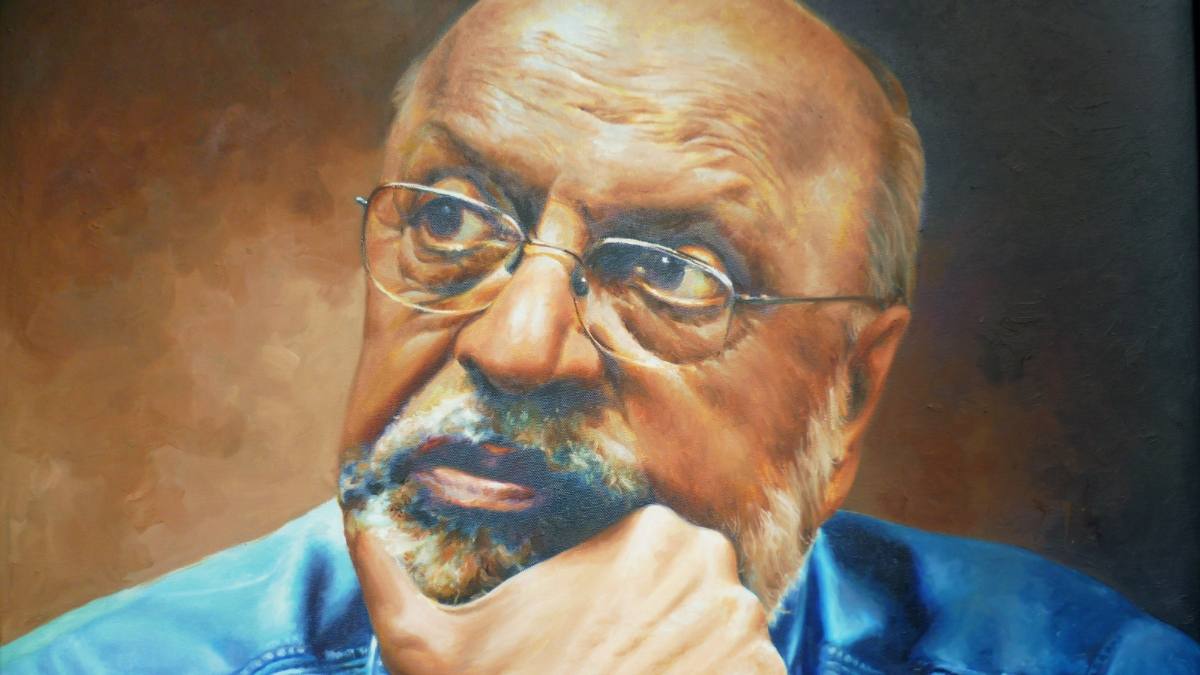At the age of 90, Shyam Benegal, the renowned Indian filmmaker, passed away in Mumbai on December 23, 2024. In a hospital, his daughter, Pia Benegal, confirmed that he passed away due to chronic kidney disease. Benegal’s distinguished career, which commenced in the 1970s, was distinguished by his profound dedication to the examination of social issues through his features, documentaries, and television series. He was a prominent figure in the “parallel cinema” movement, which aimed to provide a more realistic and socially conscious alternative to the mainstream Bollywood productions of the era.
Benegal was born in Hyderabad on December 14, 1934, and was raised in a household with a strong artistic background. His father was a professional photographer. He is a graduate of Osmania University, where he pursued a degree in economics and developed a strong passion for filmmaking. His foray into the film industry commenced with an apprenticeship in television advertisements, which served as the foundation for his subsequent pursuits.
The release of “Ankur” (“The Seedling”) in 1974 marked Benegal’s breakthrough, as the film addressed the intricate issues of human cruelty, caste, and the plight of women in rural India. The film was nominated for the esteemed Golden Bear at the Berlin International Film Festival, where it recounts the tale of a privileged landowner who exploits an impoverished couple. This initiated a period of prolific production, during which Benegal created numerous critically acclaimed films that resonated with both audiences and critics.
India was confronted with poverty and identity in the aftermath of its independence from British colonial control during the 1970s and 1980s. The films of Benegal encapsulated the substance of this turbulent era, engaging with contemporary issues and appealing to the educated classes. His narrative approach was in stark contrast to the melodramatic song-and-dance routines that are prevalent in mainstream Hindi cinema. According to Piyush Chhabra, a research scholar at Jawaharlal Nehru University, Benegal’s films were able to achieve both critical and commercial success by working within the confines of popular cinema, rather than attempting to distance himself from it.
“Nishant” (1975), a taut criminal drama about a woman’s abduction, and “Manthan” (1976), which dramatised the “white revolution” in India, are among the notable works in Benegal’s filmography. His films frequently depicted the challenges of marginalised communities and emphasised the presence of strong female characters. He investigated the life of a brothel in “Mandi” (1983), and in “Kalyug” (1981), he retold the Mahabharata from the perspective of two competing family enterprises in Bombay. These films not only provided entertainment but also prompted contemplation and dialogue regarding critical social issues.
Benegal was renowned for his meticulous attention to detail and veracity in filmmaking throughout his career. He frequently employed local technicians and actors to guarantee that his films accurately represented the communities they portrayed. His non-hierarchical approach to filmmaking cultivated a collaborative atmosphere on set, where actors were encouraged to participate even on days when they were not filming. The rich tapestry of his films, which were imbued with a sense of realism and depth, was considerably enhanced by this distinctive approach to working.
Benegal’s influence was not limited to the silver screen. From 1980 to 1986, he served as the director of the National Film Development Corporation. He forayed into the television industry with ambitious projects like “Yatra” (1986) and “Bharat Ek Khoj” (1988-89), a 53-part series that was inspired by Jawaharlal Nehru’s “The Discovery of India.” Benegal’s capacity to address intricate subjects with nuance and sensitivity was demonstrated in this series, which condensed 5,000 years of Indian history into a captivating narrative.
Benegal resumed his cinematic career in the aftermath of the 1992-93 Bombay rioting with a trilogy of films that focused on the lives of Muslim women, including “Mammo” (1994) and “Zubeidaa” (2001). Throughout his life, he remained a vocal proponent of secular and inclusive values, and his work continued to reflect the evolving social milieu of India. In recent years, he has endorsed petitions in support of LGBTQ+ rights and in opposition to the construction of religious buildings on disputed sites, thereby demonstrating his dedication to social justice.
Benegal’s films continued to be pertinent and impactful, despite the changing political landscape in India. He garnered admiration from audiences across the spectrum for his capacity to address challenging issues with empathy and insight. Rahul Gandhi and Prime Minister Narendra Modi, among others, conveyed their condolences and recognised the influence of Benegal’s work on Indian society and cinema in the wake of his passing.
Benegal’s legacy is defined by his unwavering commitment to storytelling that mirrors the intricacies of Indian society. His films continue to captivate audiences, providing a perspective on the triumphs and tribulations of marginalised communities. He was a pioneering director in the parallel cinema movement, and his contributions to the Indian filmmaking milieu were instrumental in inspiring future generations of filmmakers.
Benegal continued to be involved in the industry during his retirement, culminating in the release of his final film, “Mujib: The Making of a Nation,” in 2023. This dramatisation about Sheikh Mujibur Rahman, the founding father of Bangladesh, exemplified his unwavering dedication to the exploration of historical narratives and his enduring passion for storytelling.
Shyam Benegal is survived by his wife, Nira Mukerji, and his daughter, Pia, who has also achieved recognition as a renowned costume designer. His unwavering dedication to social issues and his contributions to Indian cinema will be cherished for generations to come, thereby establishing him as one of the most influential filmmakers in the history of Indian cinema.
